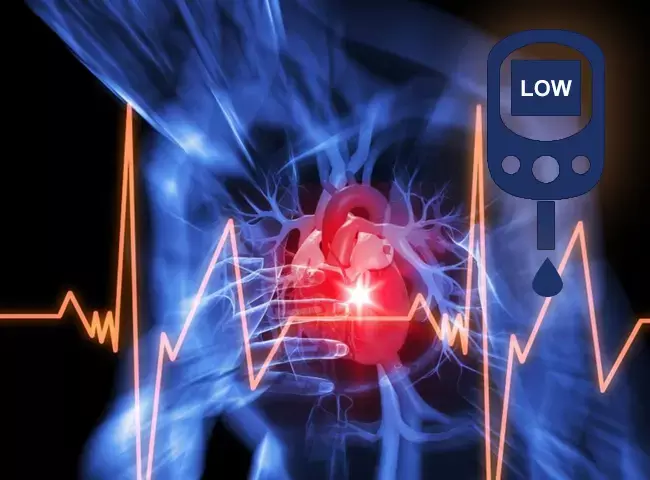- Home
- Medical news & Guidelines
- Anesthesiology
- Cardiology and CTVS
- Critical Care
- Dentistry
- Dermatology
- Diabetes and Endocrinology
- ENT
- Gastroenterology
- Medicine
- Nephrology
- Neurology
- Obstretics-Gynaecology
- Oncology
- Ophthalmology
- Orthopaedics
- Pediatrics-Neonatology
- Psychiatry
- Pulmonology
- Radiology
- Surgery
- Urology
- Laboratory Medicine
- Diet
- Nursing
- Paramedical
- Physiotherapy
- Health news
- Fact Check
- Bone Health Fact Check
- Brain Health Fact Check
- Cancer Related Fact Check
- Child Care Fact Check
- Dental and oral health fact check
- Diabetes and metabolic health fact check
- Diet and Nutrition Fact Check
- Eye and ENT Care Fact Check
- Fitness fact check
- Gut health fact check
- Heart health fact check
- Kidney health fact check
- Medical education fact check
- Men's health fact check
- Respiratory fact check
- Skin and hair care fact check
- Vaccine and Immunization fact check
- Women's health fact check
- AYUSH
- State News
- Andaman and Nicobar Islands
- Andhra Pradesh
- Arunachal Pradesh
- Assam
- Bihar
- Chandigarh
- Chattisgarh
- Dadra and Nagar Haveli
- Daman and Diu
- Delhi
- Goa
- Gujarat
- Haryana
- Himachal Pradesh
- Jammu & Kashmir
- Jharkhand
- Karnataka
- Kerala
- Ladakh
- Lakshadweep
- Madhya Pradesh
- Maharashtra
- Manipur
- Meghalaya
- Mizoram
- Nagaland
- Odisha
- Puducherry
- Punjab
- Rajasthan
- Sikkim
- Tamil Nadu
- Telangana
- Tripura
- Uttar Pradesh
- Uttrakhand
- West Bengal
- Medical Education
- Industry
Frequent non-severe hypoglycemia tied to severe hypoglycemia, MACE, and death: LEADER trial

UK: Data from the LEADER trial showed that in patients with type 2 diabetes, higher rates of non-severe hypoglycaemic episodes (NSHEs) are associated with a higher risk of severe hypoglycemia and adverse cardiovascular (CV) outcomes. Adverse cardiovascular outcomes include cardiovascular death, MACE, and all-cause mortality.
This implies that regardless of the cause of this association, it is important to identify individuals with high rates of hypoglycemia so that the potential risk of CV events can be managed and action can be taken to reduce NSHEs. The findings from this post hoc analysis of the LEADER trial -- a double-blind, multicentre, placebo-controlled trial -- were published in the journal Diabetologia. The trial had found that liraglutide significantly reduced the risk of MACE compared with the placebo.
A common side effect of some other antihyperglycaemic agents used for diabetes treatment is hypoglycemia. Trials of glycaemic control in type 2 diabetes have shown severe hypoglycemia to be associated with adverse cardiovascular events. The relationship between and NSHEs and severe hypoglycemia has been documented in type 2 diabetes patients, however, an association between more frequent NSHEs and cardiovascular events has not been verified.
Against the above background, Simon R. Heller and the team carried out a post hoc analysis of the LEADER (Liraglutide Effect and Action in Diabetes: Evaluation of Cardiovascular Outcome Results) trial to confirm whether there is an association between NSHEs and severe hypoglycaemic episodes in people with type 2 diabetes. In addition, they also investigated the possible association between NSHEs and major adverse cardiac events (MACE), cardiovascular death, and all-cause mortality.
In the post hoc analysis, the researchers explored in all LEADER participants, whether the annual rate of NSHEs was associated with time to first severe hypoglycaemic episode, time to first MACE, time to cardiovascular death, and time to all-cause mortality. NSHEs were defined as self-measured plasma glucose <3.1 mmol/l [56 mg/dl]. The first severe hypoglycaemic episode was defined as an episode requiring the assistance of another person.
For HR estimates, participants with <2 NSHEs per year were used as reference. Cox regression with a time-varying covariate was used.
Key findings include:
- The authors demonstrated an association between NSHEs (2–11 NSHEs per year and ≥12 NSHEs per year) and severe hypoglycaemic episodes (unadjusted HRs 1.98 and 5.01, respectively), which was consistent when baseline characteristics were accounted for.
- While no association was found between participants with 2–11 NSHEs per year and adverse cardiovascular outcomes, higher rates of NSHEs (≥12 episodes per year) were associated with a higher risk of MACE (HR 1.50), cardiovascular death (HR 2.08), and overall death (HR 1.80).
"The findings showed that higher rates of NSHEs are associated with higher rates of severe hypoglycemia, MACE, cardiovascular death and all-cause mortality in patients with type 2 diabetes," the authors wrote.
The authors strongly argue that whatever the underlying driver of the link between CVD and hypoglycemia, it is important that healthcare professionals and patients take steps to reduce this common complication of treatment.
Reference:
Heller, S.R., Geybels, M.S., Iqbal, A. et al. A higher non-severe hypoglycaemia rate is associated with an increased risk of subsequent severe hypoglycaemia and major adverse cardiovascular events in individuals with type 2 diabetes in the LEADER study. Diabetologia 65, 55–64 (2022). https://doi.org/10.1007/s00125-021-05556-7
Dr Kamal Kant Kohli-MBBS, DTCD- a chest specialist with more than 30 years of practice and a flair for writing clinical articles, Dr Kamal Kant Kohli joined Medical Dialogues as a Chief Editor of Medical News. Besides writing articles, as an editor, he proofreads and verifies all the medical content published on Medical Dialogues including those coming from journals, studies,medical conferences,guidelines etc. Email: drkohli@medicaldialogues.in. Contact no. 011-43720751


